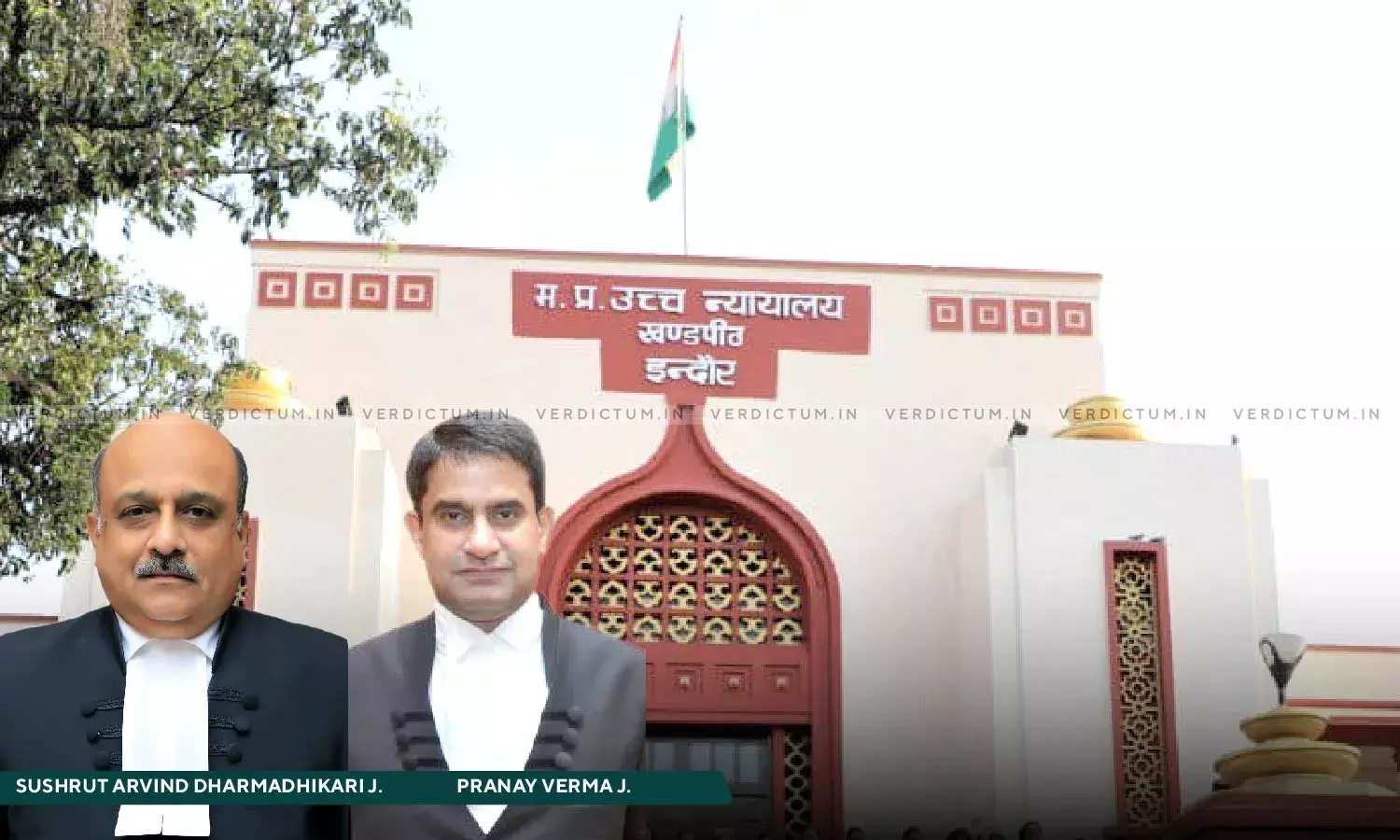Section 14 SARFAESI Act| Power Of District Or Additional District Magistrate Is Only Executory Or Ministerial And Not Adjudicatory: Madhya Pradesh High Court Reiterates

The Madhya Pradesh High Court, Indore Bench, reiterated that the nature of the power under Section 14 of the Securitisation and Reconstruction of Financial Assets and Enforcement of Securities Interest Act, 2002 (SARFAESI Act) vested in the District Magistrate (DM) or the Additional District Magistrate (ADM) is not adjudicatory but rather ministerial and executory.
The Court allowed a Petition challenging the order of the First Respondent (Additional District Magistrate). The Court emphasized that the First Respondent chose not to comply with the said order of the Court for issuing notice under Section 14 but rather went beyond the scope of Section 14 and transgressed its jurisdiction.
The Bench comprising Justice Sushrut Arvind Dharmadhikari and Justice Pranay Verma observed, “Thus, from the above, it is apparent that nature of power u/S 14 of SARFAESI Act vested in the District Magistrate/Additional District Magistrate is executory and ministerial and not adjudicatory… This is the second round of litigation by the petitioner. Despite the order passed by this Court earlier in W.P. No... 10672/2023, respondent no.1 has not chosen to comply with the same and kept sitting tight over the matter. In the considered opinion of this Court, respondent no.1 has earlier travelled beyond the scope of Section 14 of the SARFAESI Act and thereafter transgressed its jurisdiction by dismissing the application and therefore, the impugned order deserves to be quashed”.
Advocate Nilesh Agarwal appeared for the Petitioner, Advocate Rohit Sharma appeared for the Respondent, and Advocate General Aniket Naik appeared for the State.
The Petitioner provided loans to the Second to the Fifth Respondents (said Respondents) against equitable mortgage of a property. Later, the accounts of the said Respondents were classified as non-performing assets (NPA) due to irregular payments. The Petitioner filed an application under Section 14 of the SARFAESI Act. The Additional District Magistrate (First Respondent) rather than issuing notice, granted an opportunity to the said Respondents to defend the application. The Petitioner challenged the order and it was eventually decided in his favor (said order). Petitioner again filed for compliance of the order but no actions were taken. The Petition filed a contempt petition against the First Respondent. The Petitioner also approached the Court by way of a Writ Petition challenging the order of the First Respondent whereby application under Section 14 of the SARFAESI Act was dismissed.
The Court noted that the power granted to a District or Additional District Magistrate under Section 14 of the SARFAESI Act is executory and ministerial but not adjudicatory. The Court noted that despite the order being passed, the First Respondent has failed to comply with the same and therefore, traveled beyond the scope of his powers under Section 14.
Furthermore, the Court observed that the First Respondent attained the role of adjudicatory Authority and cited reasons that she became a functus officio. Therefore, the Court directed the said Magistrate to appear before the Court explaining why she interpreted its order instead of complying with the order of the Court.
Therefore, the Court imposed cost upon the First Respondent for deliberately interpreting the law per her convenience. "The cost of Rs. 10,000/- shall be deposited by the Additional District Magistrate herself from her own pocket and not to be borne by the State Government", the Court ordered.
Accordingly, the Court allowed the Petition, set aside the impugned order, and directed the First Respondent to pass the order afresh.
Cause Title: SMFG India Credit Card Company Limited v Additional District Magistrate, Indore

